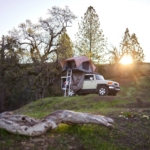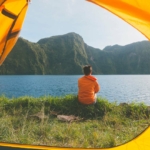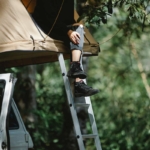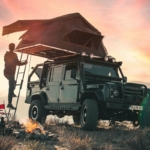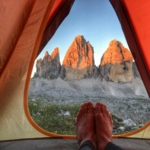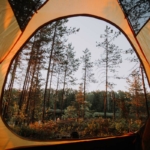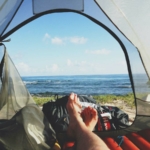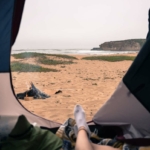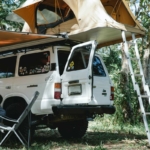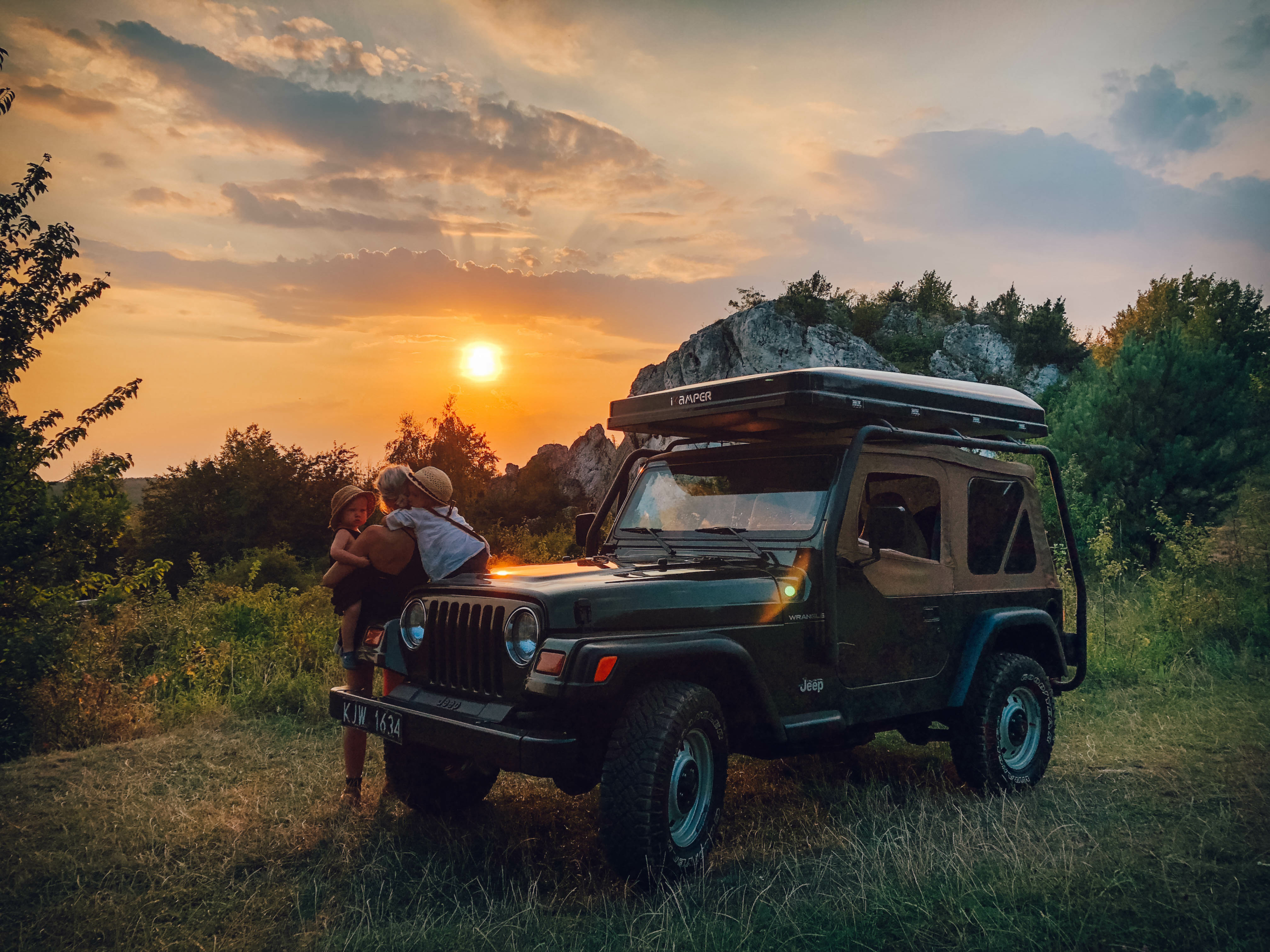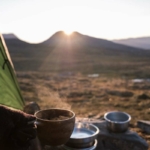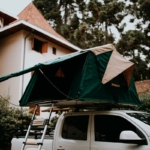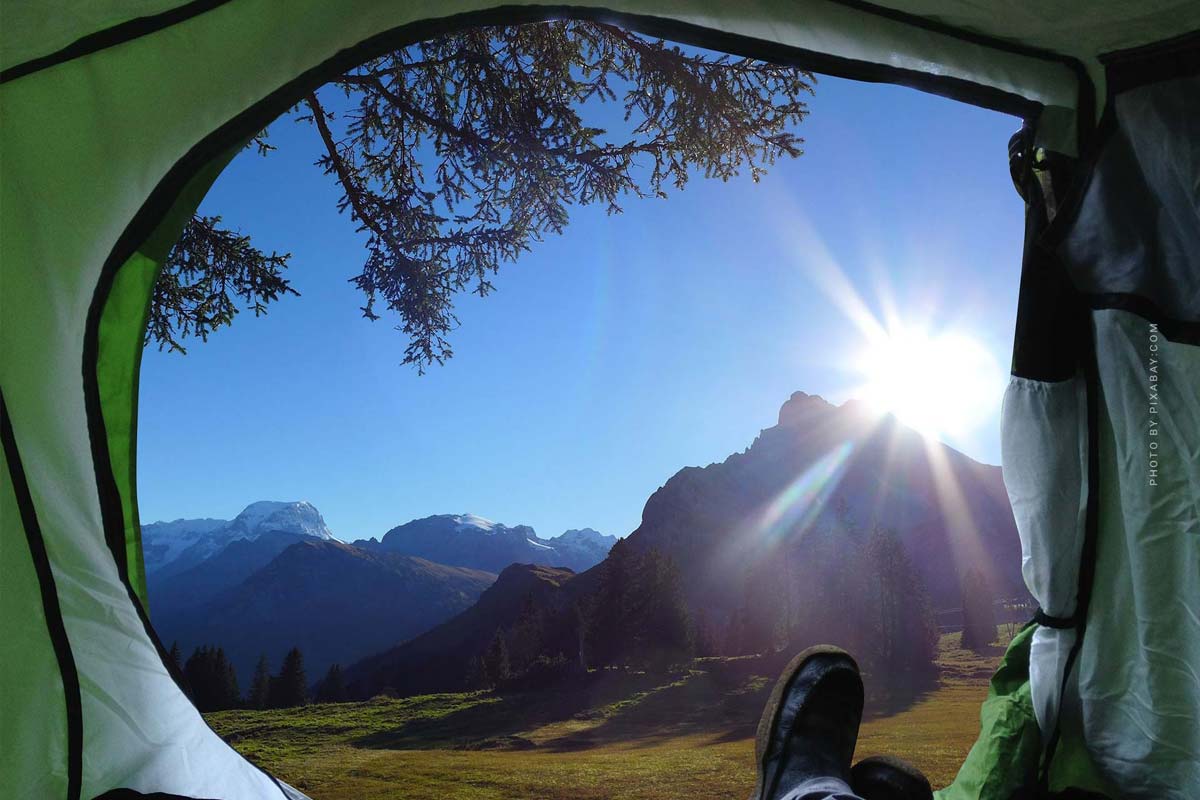Wild camping: Sleeping under the open sky – Is it allowed?
Wild camping – sleeping in the great outdoors, far from campsites and private grounds, is a unique experience that offers you an intense nature experience and boundless freedom. Wild camping offers the unique opportunity to spend the night in the great outdoors. However, you should pay attention to legal regulations. If you have prepared yourself properly, you can enjoy nature and experience unforgettable adventures. A roof tent offers a comfortable sleeping accommodation and maximum flexibility. Here we prepare you so that you can enjoy the freedom of wild camping to the fullest. Back to the topic: Camping!
Sleeping in the great outdoors: that’s wild camping!
Wild camping refers to camping or spending the night in the wild outside of campgrounds or private property. It means staying overnight in a place that is not specifically set up for camping purposes. Wild camping involves finding a suitable place in nature, such as a remote forest, field or mountain, to pitch your tent and spend the night.
Close to nature & freedom to choose sleeping place
Wild camping offers a more intense nature experience and greater freedom in terms of site selection and activities compared to camping at organized campgrounds. It allows campers to choose their own campsite according to personal preferences and the needs of the trip. This opens the possibility of discovering remote places and experiencing new adventures in nature.
Rest & relaxation: recharge energy reserves
Wild camping allows you to be away from the crowded tourist areas and enjoy the beauty of nature in a secluded environment. It provides an escape from stressful everyday life and offers the opportunity to relax and recover from physical and mental stress. Spending time in nature, away from urban noise and distractions, creates space for inner peace and recharging energy reserves. It helps that you experience the wild camping, the animal and plant world up close.
Self-sufficiency, but inexpensive
When wild camping, people are often on their own and must provide their own equipment, food, and preparation. This fosters a sense of self-reliance and self-sufficiency as people learn to navigate the outdoors and be independent. Another advantage of wild camping is that it is a cost-effective alternative, as there are often no overnight fees. This allows travelers on a limited budget to experience and enjoy nature without the high cost of campgrounds.
That’s what wild camping is all about!
Quickly in the overview – that’s what’s special about wild camping:
- Camping in the great outdoors, away from campgrounds & private grounds.
- Freedom to choose where to sleep, such as remote forests, fields or mountain
- Intensive experience of nature & allows to discover remote places
- Rest, relaxation & recreation away from crowded tourist areas
- Promotes self-reliance, self-sufficiency & self-reliance in nature.
- Cost-effective alternative, as there are no overnight charges

Alternative to camping: Wild camping allowed!
When wild camping, it is important to note that in many countries and regions legal regulations apply or wild camping may even be completely prohibited. These rules are in place to protect nature, avoid danger, and prevent conflicts with landowners. To avoid fines or other legal consequences, you should inform yourself about the respective laws and regulations before wild camping.
Wild Camping in Germany: Allowed or forbidden?
In Germany, the following regulations apply:
In principle, wild camping is not allowed. However, briefly entering natural areas for recreation is allowed as long as you do not pitch a tent or give the impression of “living” there. It is allowed to sleep under the open sky, even with a tarp (also called a tarp). Except in Berlin, you are not allowed to do that. In Hesse and Schleswig-Holstein you are also not allowed to leave paths at night. It is also forbidden to camp in nature reserves, national parks or on private property without the owner’s consent.
When traveling by car, you are allowed to stop at the side of the road to “restore your fitness to drive.” This means you are allowed to rest briefly, but then you should continue driving. Again, you are not allowed to unpack your camping table and appear to be “living”. You should follow these rules to protect nature and avoid negative impact on the environment.
Alternative: trekking places in the open nature
However, there are also special trekking sites, which are smaller pitches for campers in the wild. Spending the night there is allowed. Usually these offer space for up to four tents, have a few simple seats and sparse sanitary facilities. However, you get closer to nature than in a conventional campsite. Surrounded by nature and the sounds of the forest, you can slowly drift off to sleep or cook under the open sky – with the cooking tips you are suitably prepared.
In Germany, wild camping is generally prohibited, but brief entry into natural areas for recreation is permitted. As an alternative, there are trekking sites that allow you to spend the night in the great outdoors and offer a more intense experience of nature.
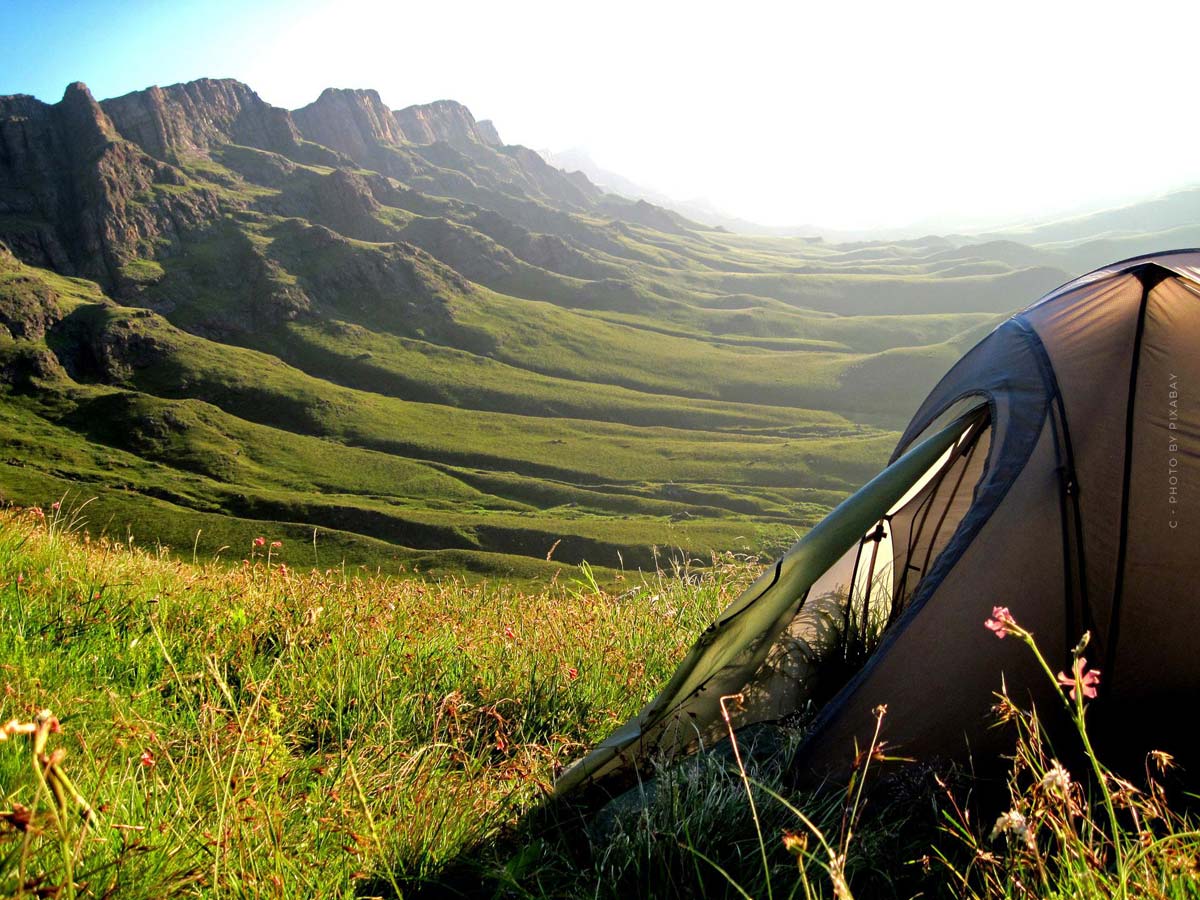
Where to go? Travel tips!
In some countries, wild camping is even allowed, although there are certain rules and restrictions. It is of great importance to check the current information and regulations locally to make sure that you do not violate any laws or regulations. This article is for general information only and does not constitute binding legal advice.
Wild camping allowed: Estonia, Lithuania & Latvia
In these countries, wild camping is allowed as long as no noise is caused and no damage is done to nature. It is not allowed to camp in nature reserves and time and regional restrictions may apply. So please inform yourself thoroughly about the specific region you want to camp in.
Two days in one place: Finland, Sweden & Norway
Wild camping is also generally allowed in the Scandinavian countries of Sweden and Norway, as long as you stay away from agricultural land. You are expected to take your trash with you, and camping is usually allowed for a maximum of two days in one place.
You can find more vacation tips for the two countries here:
Wild camping far from private land: Scotland
Wild camping is also allowed in Scotland as long as no pollution is left behind and no remains of tents and fires are left behind. However, there are regional restrictions and seasonal wild camping may not be allowed in some areas. Stick to the limit of three days in one place and camp only with a small group of people. In addition, stay away from farms, pastures, fields, private property and homes.

Preparation: Gather info & pack equipment beforehand
Before you set out on your wild camping adventure, it’s important to be aware of the legal requirements and regulations in your destination to avoid fines and legal consequences. Always think about your safety, learn about potential hazards and take a first aid kit and a communication device, such as a cell phone. Create an emergency plan and share your travel plans with someone for assistance if needed.
Wild camping holds the unique opportunity to experience nature intensively and enjoy greater freedom in site selection and activities. Respect nature, be responsible and don’t leave trash behind. By preparing yourself, respecting the environment and paying attention to safety, you can have an unforgettable adventure in the great outdoors while ensuring that future campers can enjoy the beauty of nature.
You should pay attention to this before you set out:
- Find out about legal requirements & regulations
- Think about your safety & inform yourself about dangers
- First aid kit & care for functioning communication
- Create a contingency plan & share your travel plans with someone
- Respect nature & be responsible (no trash)
Equipment: Exciting days & cold nights
When you’re getting ready to go wild camping, keep these things in mind.
Maps or navigation aids and a headlamp are important so you can find your way without reception or light. A power bank is also helpful, as there are no outlets outside and you should keep your phone functional for emergencies. Remember to bring trash bags to make sure you don’t leave any trash or dirt in the environment. Also, warm clothing is crucial as it can get cold quickly at night and in bad weather.
In addition to these essential items, you should also have standard camping gear, such as sleeping bags, sleeping pads, and cooking utensils. A suitable sleeping accommodation is also important, especially if you want to park anywhere but still want comfort. In this case, as before, it makes sense to take a roof tent. The roof tent you can quickly and easily unfold anywhere you want to camp and yet it takes up less space on the roof of your car than a caravan.
You can get help with setting up here: Sleeping & Living while camping!
With this packing list you are suitably prepared:
- Map or navigation aid
- Forehead or flashlight
- Mobile Phone & Powerbank
- Garbage bags
- Warm & weatherproof clothing
- Sleeping bags, camping mats & cooking utensils
If you want to read about it in more detail, you can read on here: Camping Packing List.


